Uncategorized
MARK ZUCKERBERG ON WHY FACEBOOK IS REBRANDING TO META
/cdn.vox-cdn.com/uploads/chorus_image/image/70058407/The_Verge_Mark_Zuckerberg_interview__1__01.0.jpg)
The company wants to move past the ‘confusion and awkwardness’ of sharing a name with its main appBy Alex Heath@alexeheath Oct 28, 2021, 2:20pm EDT
Share this story
- Share this on Facebook (opens in new window)
- Share this on Twitter (opens in new window)
- SHAREAll sharing options
ForFor the first time in 17 years, Mark Zuckerberg has a new job title.
On Thursday, he officially became the CEO and chairman of Meta, the new parent company name for Facebook. The rebrand is about solidifying the social media giant as being about the metaverse, which Zuckerberg sees as the future of the internet. Zuckerberg is staying in control of everything. He told me in an interview that, unlike the founders of Google who stepped aside in 2015 when it became part of a holding company called Alphabet, he has no plans to give up the top job.“I THINK WE’RE BASICALLY MOVING FROM BEING FACEBOOK FIRST AS A COMPANY TO BEING METAVERSE FIRST.”
Instead, the change is about recognizing a shift inside the company that’s already taken place. Zuckerberg has been pouring billions of dollars — at least $10 billion this year alone — into building the metaverse, an expansive, immersive vision of the internet taken from the pages of sci-fi novels like Snow Crash and Ready Player One. “I think we’re basically moving from being Facebook first as a company to being metaverse first,” he told me this week over the phone. While details are slim, a unified account system is going to be introduced to span all of the company’s social apps, the Oculus Quest headset, Portal, and future devices. That means you won’t need a Facebook account to use the Quest.
The rebrand to Meta, announced by Zuckerberg today at the company’s annual Connect conference, has been a clandestine affair since he formally kicked off the project just over six months ago. The small handful of employees involved had to sign separate nondisclosure agreements, and Zuckerberg refused to tell me the name itself when we spoke the day before Connect. He said he had been thinking about rebranding the company ever since he bought Instagram and WhatsApp, in 2012 and 2014, but earlier this year he realized that it was time to make the change.
“I think that there was just a lot of confusion and awkwardness about having the company brand be also the brand of one of the social media apps,” he said. “I think it’s helpful for people to have a relationship with a company that is different from the relationship with any specific one of the products, that can kind of supersede all of that.”RECENT LEAKS HAD “NOTHING TO BEAR” ON THE NAME CHANGE
Zuckerberg knows that the timing of this rebrand is suspect. Over the past few weeks, the company has been hit with a nonstop barrage of criticism, thanks to leaked internal documents provided to the media by a former employee named Frances Haugen. Facebook is perhaps the most scrutinized company in the world right now, and its brand has soured in the eyes of young people. To the many critics, distancing the company brand and Zuckerberg from the name Facebook will be seen as an evasion tactic.
According to Zuckerberg, the current cycle of bad news “had nothing to bear on this. Even though I think some people might want to make that connection, I think that’s sort of a ridiculous thing. If anything, I think that this is not the environment that you would want to introduce a new brand in.”
/cdn.vox-cdn.com/uploads/chorus_asset/file/22963952/06_211025_CompanyEC_16x9__30fps__1080_1.gif)
The metaverse as an idea isn’t new, but it wasn’t thrust into the mainstream conversation until Zuckerberg started talking about it publicly earlier this year. The concept originates from Snow Crash, a dystopian novel from the 1990s in which people flee the crumbling real world to be fully immersed in a virtual one. While he acknowledges that the origins of the word are a “con,” Zuckerberg is trying to reclaim the metaverse as a utopian idea that will unlock an entirely new economy of virtual goods and services.
In the next decade, he thinks most people will be spending time in a fully immersive, 3D version of the internet that spans not just Meta’s hardware such as the Quest, but devices made by others. He’s pushing his teams to build technology that could one day let you show up in a virtual space as a full-bodied avatar, or appear as a hologram of yourself in the real-world living room of your friend who lives across the planet.
:no_upscale()/cdn.vox-cdn.com/uploads/chorus_asset/file/22888569/acastro_210929_4779_0001.jpg)
WHAT IS THE METAVERSE?
It depends who you ask, but it usually refers to an array of interconnected digital spaces, sometimes in VR, sometimes experienced through a social network, and sometimes including real-time reference points to the physical world. You can read more about it here.
He’s careful not to get into details, but he believes there will be a “pretty important role” for crypto technology like NFTs and smart contracts in the metaverse. “One of the big questions that people are going to have about virtual goods in the metaverse is, ‘Do I really get to own this thing?’” he told me. “‘Or is it just content that someone can basically just take away from me in the future?’ And I’m pretty sensitive to that given all the pressures that we’ve had to try to navigate around censorship, and what’s the definition of something that’s harmful versus when you have to get in the way of people being able to express something.”
The software underpinning Zuckerberg’s take on the metaverse is called Horizon. It’s part Minecraft meets Roblox with an application for work collaboration as well. Next year, the company plans to introduce Project Cambria, a high-end, mixed reality headset previewed at Connect that mixes virtual graphics with the real world in full color. It will have face and eye tracking to allow for more realistic avatars.
Also in the works is a pair of AR glasses called Nazaré. While they are still several years out, to Zuckerberg they have the potential to be as widely used as mobile phones are today. The idea is that, unlike a VR headset that takes you out of the real world, Nazaré will look like a normal pair of glasses with displays capable of overlaying computing onto the world around you. “These products are becoming decreasingly like what you would think of as a social media product today,” he said. “And I think just having a different identify for that is important.”
It’s unclear if this rebrand to Meta will achieve what Zuckerberg is aiming for, but there’s no question that it’s a bold move. The company is facing down new social media competitors, frustrated government regulators, and a new generation of potential users who view its core app as far from hip. The metaverse offers Zuckerberg a substantially new, maximalist direction to move toward. Now it needs to get to work.
Below is a transcript of my full interview with Zuckerberg. It has been edited for length and clarity:
Alex Heath: Can you explain why you’re doing this rebrand?
Mark Zuckerberg: At a high level, we did this segment reporting change on Monday as part of earnings. So we’re now looking at our business as two different segments. One for the social apps and one for future platforms basically. And the idea is that the metaverse work that we’re doing is not about any one of those segments. It’s not like Reality Labs is doing the work building the metaverse. It goes across all of this. The metaverse is going to be both future platforms and social experiences.
So we wanted to have a new brand identity that, as you reported, is directionally aligned with the future vision that we’re working towards. There’s sort of a higher-level brand identity goal and then there’s a more technical and functional goal. The higher-level piece is that Facebook is the iconic social media brand. And increasingly we’re doing more than that. People think of us as a social media company, but the way we think about ourselves is that we’re a technology company that builds technology to help people connect with each other. We think that makes us different from the other companies because everyone else is trying to work on how people interact with technology, where as we we build technologies so that people can interact with each other.
:no_upscale()/cdn.vox-cdn.com/uploads/chorus_asset/file/22964096/DSCF7682.jpg)
For us, it was never just about social media, and increasingly we’re moving beyond that. It felt like having the brand of the company be tied to the idea of social media and one of the specific products that we’re building there — because we now have Instagram and WhatsApp growing to be really important as well — felt increasingly like it didn’t encompass everything that we were doing. So we wanted to shift that to have something that is more evocative of the vision that we’re moving towards.“IT’S HELPFUL FOR PEOPLE TO HAVE A RELATIONSHIP WITH A COMPANY THAT IS DIFFERENT FROM THE RELATIONSHIP WITH ANY SPECIFIC ONE OF THE PRODUCTS.”
On a more functional and technical basis, I think that there was just a lot of confusion and awkwardness about having the company brand be also the brand of one of the social media apps. When people wanted to go sign into their Quest, we wanted them to sign in with their Facebook account because we wanted to have a single identity or account system for the company. Google has that, Apple has that. Microsoft has it. But for us, the issue is that if you’re signing into Quest or WhatsApp or Instagram with a Facebook account, I think that there was a confusion about, “Am I signing into this with my Facebook corporate account or is this going to be tied to my social media account?” People had concerns on Quest. “If I don’t want to use Facebook or if something happens and my account gets deactivated, is my device now going to get bricked?” That’s a concern that I think people shouldn’t have to have. People had concerns that, “If I sign into Instagram with this or if I sign into WhatsApp with it, does that mean that my data is somehow gonna get shared over here in a way that I didn’t want?”
I think it’s helpful for people to have a relationship with a company that is different from the relationship with any specific one of the products, that can kind of supersede all of that. So from a functional perspective, I thought it was very important to have that. And as I looked out several years towards launching something like Nazaré, these products are becoming decreasingly like what you would think of as a social media product today. I think just having a different identify for that is important.
When I thought about when was the best time to try to make that shift, it’s kind of like as soon as possible once you realize that you want to do that. So that’s what led us down this path. We’ve been thinking about it for a long time. I formally kicked off the project earlier this year. It was a little over more than six months ago. But this is a debate that we’ve been having for a long time inside the company, about whether we should do this. It’s something that I’ve been working with Alex Schultz on very closely since he became the CMO.
Is there a restructuring component of this functionally with how the organizations report to people as well? Or is it more just the brand?
Zuckerberg: There’s the financial reporting and segment reporting. There is the brand. There will be the account system. We’re not making org changes today as part of that. That might be something that I’ll consider in the future, but I don’t think that’s something that’s near term on the horizon.
You said you started this formally about six months ago. Is it at all a reaction to the brand baggage and the brand tax you guys sometimes refer to internally that Facebook has, and just wanting to distance from that? Or is it really more just looking ahead? I have to imagine it’s a mix of both.
Zuckerberg: We started well before the current cycle [of bad news]. I think the current cycle clearly had nothing to bear on this. Even though I think some people might want to make that connection, I think that’s sort of a ridiculous thing. If anything, I think that this is not the environment that you would want to introduce a new brand in.“TO ME PERSONALLY, IT WAS REALLY IMPORTANT THAT WE ARE RUNNING TOWARDS SOMETHING.”
I think sometimes you just have to keep pushing forward. There’s a lot of different aspects and attributes of these brands. There’s obviously all these good and bad attributes that people ascribe to social media overall, and Facebook in particular. And these are conversations that we sort of had inside the company I think going back to, like 2014, ever since Instagram and WhatsApp joined and we became a family of apps. There was a little bit of an inherent awkwardness to having the company named after one of them. I never really considered it when I thought the primary thing that we were doing was social media, because Facebook was and still is the iconic social media brand. So it always felt a little odd to me to have a brand that was supposed to stand for social media and take Facebook out of that slot and put something else in. That felt a little odd. I wasn’t sure what job that would be doing.
But now I think the next chapter of what we’re doing is coming more into focus. And I know that a lot of people are gonna have questions like the one that you asked. To what extent are we running towards something versus running away from it? And I guess all I can say is that, to me personally, it was really important that we are running towards something. And that this is a vision for the future that we’re really excited about and that we’re committed to and we’re really going for. I wouldn’t have wanted to do this if that wasn’t in my heart how I felt about what we were doing.
I know that people will kind of ascribe a lot of different reasons, and obviously there’s different pros and cons of doing different things. But that was a basic litmus test for me. I wasn’t gonna let us do this if I didn’t feel really strongly about the thing that we were anchoring our brand on and how we were going to move forward.
Do you think it helps with internal morale and recruiting as well, if you’re looking ahead and you’re trying to reposition how the company is thought of in the valley and where you’re hiring from?
I think that’s an interesting question. My guess is it will help with some people, but it might also be different for some people. So I’m not sure. We’ve had this conversation for several months now since I’ve signaled that I wanted us to become a metaverse company and be seen in this way. And I’d say, overall, the sentiment is definitely positive internally about it. I think more people are very excited about it.“WE CONTINUE TO FOCUS ON BEING THE BEST AT BUILDING SOCIAL MEDIA APPS.”
But I think it’s also really important to our team, and frankly it’s important to me, too, that we continue to focus on being the best at building social media apps. A lot of people come to Facebook today because that’s what they want to go do. And I think it’s really important to people that we are paying attention to that going forward. Billions of people use our products and we need to make sure we keep doing that well. But I do think it should be exciting to people. I think, in general, the best people want to work as part of big missions. I certainly think that the metaverse as the next chapter of the internet is going to be really exciting to a lot of the right people. I think we’re clearly positioned as a company that has the most ambitious vision and the deepest commitment and investment in this area.
Is part of this at all about setting up a way for you to change your role at the company in the coming years? Do you still see yourself as CEO and chairman in, say, five years?
Zuckerberg: I think probably. I don’t have a specific date how long I want to be doing this for. I guess what I could say is I’m very excited about the next chapter of what we’re doing. So I really want to go do that. So yeah, I don’t have anything more to add on that. I wouldn’t look at this as part of a plan to move in that direction.
Because you know you’re gonna get the Alphabet comparisons.
Zuckerberg: Yeah, I think it’s a fair question. I guess what I can say is that really isn’t what we’re doing here. I think this is more about just signaling our commitment to this vision and focusing on it, setting up a new brand architecture for the company so that way all people who use our products can have a relationship with the company that is separate from their relationship with the apps. I’m very excited about what we’re building. And I’m pretty young. I have a lot of energy. But certainly at some point I’m not [going to be] running the company. That’s not really what this is about, though.
It sounds like you’re implying that there’s going to be a new unified account system across everything?
Zuckerberg: You’ll have a Facebook account and you’ll have an Instagram account. You’ll also have an account with the company that’s the top level. So that way if you don’t want to use Facebook, you don’t have to. One interesting analogy here is I think we’re basically moving from being Facebook first as a company to being metaverse first. I feel like this is in a way like when Microsoft went from being Windows first to cloud first.
There were all these subtle ways in which, because the company brand was Facebook, a lot of stuff flowed through Facebook and the Facebook app in ways that may have not been optimal. Facebook is still clearly the app that people use the most out of all the ones that we do. But there are people who want to just use WhatsApp or want to just use Instagram, or just want to have Quest and be in VR or AR and not have to use these things.
So I think it’s about being able to pick and choose which of the services you want to use and know that, no matter what happens to your Facebook account or your Instagram account, you’re still going to have all the content that you bought in VR or all your virtual goods. You can set up an avatar and it can be tied to one of those accounts or could just be tied to your overall identity across the different family of apps. And you can use it in all these places if you want. I bet that’s going to be pretty powerful.
Is the whole metaverse push also tied at all to the work on young adults and teens? Kids love Roblox. They love Fortnite. Is that a part of it, too?
Zuckerberg: It’s not the primary part of it. I do think it’s important to clarify that when I’m talking about what our north star demographic here is, we’re talking about young adults 18 to 29, not primarily teens and certainly not primarily kids. But like college and post college, that’s sort of historically been the strong base for us. And generally it continues to be a strong base. But I think it’s really important that as so many more people use all our products, that we don’t lose sight of that.“I DON’T THINK [METAVERSE IS] REALLY GOING TO BE HUGE UNTIL THE SECOND HALF OF THIS DECADE AT EARLIEST.”
The median age of the people who use our products gets older. As we try to make our services better for everyone, I just want to make sure that the quality doesn’t drift for young adults. What I’ve basically told every team is whenever you’re building anything now, whether you’re working on feed ranking or you’re building groups or you’re designing Reels or video or Marketplace, keep in mind especially what’s going to be important to young adults. Let’s say you’re building Marketplace. What young adults need to buy and sell is probably different from what people who are later in their life need to buy and sell. So there are just all these different ways that I think the products will shift to going in that direction.https://6c6fe3f2a3359417585156d2ff565006.safeframe.googlesyndication.com/safeframe/1-0-38/html/container.html
And that certainly goes for everything that we’re going to be doing around the metaverse, too. That’ll be the north star demographic, the hero demographic, that we keep in mind. But a lot of what we’re talking about is probably nearer term than metaverse will be. I think the work we’re doing on the metaverse will be very exciting over the next few years, but I think so much fundamental stuff has to get done that I don’t think it’s really going to be huge until the second half of this decade at earliest.
We face a lot of competition from TikTok and iMessage especially now, as well as a bunch of others that have been around forever — YouTube, Snapchat. But TikTok and iMessage are growing incredibly quickly. So I think in terms of our focus on the apps, and Facebook and Instagram in particular, that I think is going to be a bigger thing over the next one to three years. Whereas the metaverse work I think will be a little further out in terms of actually reaching a ton of people.
The term metaverse. I’m thinking about it originating from Snow Crash and that dystopia that it originates from and the context of that term, does that concern you at all? It’s kind of funny that it originates from people trying to flee the real world into a virtual one because the real one is crumbling. Is that something you thought about at all when you were thinking about leaning into the word?
Zuckerberg: Yeah, I think that’s certainly a con of it. But I think it means more than that. Obviously, the book has this whole environment around it that’s sort of negative. But I don’t think it has to be that way. I also think that as these technologies develop, they take on different connotations and metaphors. I would be very surprised if five years from now the main association that almost anyone had with the metaverse was about the initial mention of it in Snow Crash. What it’s going to mean to people is going to be all the use cases that they have in there and what they’re able to do with it.
I’d actually be interested to look at what the earliest mentions of the internet were. People called it the information superhighway and stuff. None of that was was super negative, but it was pretty odd when compared to how we think about it today. I think that these things are always more dynamic. I didn’t want to be deterred from using what seemed like the clearest and most logical term that matched what we were building because of some negative connotations that some people have. It’ll take on more meaning than that.
A part of Connect that interested me was you talking about crypto and new forms of governance in the metaverse. Are you working on supporting NFTs? It seemed to me like you were thinking about DAOs. I’d be curious to know what you think of that and smart contracts in general?
Zuckerberg: I don’t have anything to announce on that right now. But here’s what I’d say. The projects that we’ve done around Novi, I do think we’ve been the most forward leaning of the big tech companies around this space. So clearly we’re interested in it and generally supportive of the space and think that there’s an important role for it to play in the future.
One of the big questions that people are going to have about virtual goods in the metaverse is, “Do I really get to own this thing? Or is it just content that someone can basically just take away from me in the future?” And I’m pretty sensitive to that, given all the pressures that we’ve had to try to navigate around censorship and what’s the definition of something that’s harmful versus when you have to get in the way of people being able to express something. All that becomes a lot more sensitive when there’s money and ownership, people pay for something. They just really want to know that their thing isn’t going to be taken away.“I DO THINK THAT THERE’S AN IMPORTANT PLACE FOR MORE DECENTRALIZATION”
I do think that there’s a pretty important role, whether it’s the current way that people are thinking about NFTs or just ways to do decentralized entitlements across the metaverse. I don’t think that there’s going to be only one system. But I do think that there’s an important place for more decentralization across that. As more of our projects become more mature, then we’ll have more to talk about in that space.
I’m wondering if you think that Facebook has faced so much scrutiny because of how it controls the flow of speech and because there’s just natural tension there, and people don’t like that sometimes. Or because of how top-down it is, where people have little say in how it runs or an ability to make money on the platform? I think a lot of the media scrutiny operates with the assumption that you’re not stopping enough of the bad. Or that, on the more extreme end, any bad means the platform is net negative.
Zuckerberg: I do think, in general, the last five years have been a big learning period for me and the company. There were a lot of issues that we’ve just had to build much more sophisticated programs around, whether that’s around building AI systems to identify proactively all these different kinds of harmful content and act on them, building a much stronger privacy program, a lot more with encryption, all of these different things.
A lot of these are things that we cared about much earlier in the company and had some programs around, but we really kicked a lot of them into high gear after 2016. I think some of that was spurred by some of the scrutiny and then just us being introspective and saying, “Hey, I do think we should build stronger programs here.” Now, in general, I’m very proud of what we built there. I think it’s difficult problems and you’re balancing complex social equities between things like free expression and trying to address harmful content. It’s impossible to ever do both perfectly. And I think that the ideal answer probably isn’t to just lean in one direction fully or the other. It’s to try to balance it. So then you end up not making anyone particularly happy. But I am genuinely proud of the work that we’re doing there. It’s an industry-leading effort. I think anyone who’s serious acknowledges that. The investments and results far exceed the sophistication of anyone else.
But still, when you’re talking about building a new ecosystem, I just think it would undoubtedly be better to build these things in from the beginning this time. We’re pretty serious about that. So the question of what are the principles. Privacy is a really important one. And so is it safety, especially if you’re in such an immersive environment. You want to be able to say, “Hey, this person is bothering me. I need to get out of here quickly, or I want them to disappear to me.” So there are all these different dynamics that we basically want to embed in the foundation of it. Interoperability is another. It’s been disappointing, the level of interoperability today on the mobile internet. So hopefully we can do better in the next one.
Good luck!
Zuckerberg: I don’t know. One thing that I’ve talked about over the years is building these platforms around people instead of apps. I do think there’s something to this where, if the atomic unit of this system is it’s like an embodied internet and you’re in it and the atomic unit is you have your avatar and your digital goods. And the different apps aren’t completely different things. They’re just different spaces that you can teleport to.
I think that’s an architecture that should be fundamentally more amenable to interoperability, as long as you build the right standards in from the beginning, than one where the atomic unit like our mobile platforms today is apps. And the assumption is that every app is a completely different environment and you start from nothing in each one. So I do think that there’s something about how you design these things and make it more people-centric that either leans more or less towards that. So we’ll see. But I think it’s going to be good to try to build some of these things in from the front.
https://www.theverge.com/22749919/mark-zuckerberg-facebook-meta-company-rebrand













